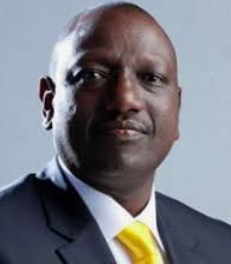A major boost for Ruto, but major questions for IEBC

In the cycle of Kenyan politics, every new party needs a confidence-booster ahead of its first major General Election. William Ruto’s United Democratic Alliance got theirs with a narrow win over Jubilee Party in the Kiambaa Constituency by-election.
Uhuru Kenyatta was there in September 2012, when twin wins in by-elections in Kajiado North and Kangema added some wind to the sails of the then newly-established The National Alliance (TNA). Forming a new party and getting a member to Parliament was one of the major tests for the party put together for his second bid at the presidency. TNA would go on to form a coalition with Ruto’s United Republican Party (URP) and generate a wave that carried them to victory in 2013, although it took the Supreme Court to affirm the victory.
With victory in Kiambaa in the President’s home county, the Deputy President will feel that his confidence has been boosted.
There were less than 60,000 votes cast in the constituency, but there was drama enough for a General Election, with allegations of rigging, voter bribery, ballot-stuffing and errors in the counting. So much was the action that counting and tallying was suspended, and the results were issued more than 12 hours after the last ballots were cast.
This being a limited contest, parties could therefore mobilise every heavyweight – Jubilee had Majority Leader Amos Kimunya and Kiambu Governor James Nyoro leading the charge while UDA deployed the Deputy President towards the end. This ended up putting pressure on the electoral commission’s officials on the ground and no doubt contributed to the drama and skirmishes. The bitterness between the two Jubilee camps was also evident, the by-election preceded by a radio interview in which the Deputy President claimed that he had been humiliated and betrayed beyond belief by his boss.
Questions are bound to arise over the efficiency of the Independent Electoral and Boundaries Commission and their capacity to conduct a frictionless election in a heated environment, which appears to have now become commonplace in Kenya.
If the evident bitterness between the two erstwhile coalition partners continues into the General Election in 2022, not only the commission but the entire country will have a lot to ponder over.
The good thing is, the commission still has time to prepare and to put together plans to accommodate all the stakeholders that will have an interest in that potentially heated contest. The power elite also has time to put together a plan to prevent the ruination of the nation.

